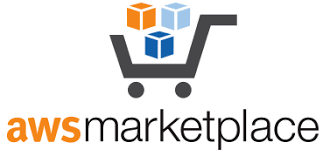Amazon AWS Choices for Cloud Relational Databases
Posted on March 28th, 2022

As Cloud Database Platforms continue to move towards center stage in the area of Data Warehousing, Analytics, Data Science, and other data-centric initiatives, the AWS platform has several choices to manage some or all of your relational data assets.
Each offering shares security, scalability, monitoring, backup, and data reliability features, but the application and use case of these platforms can vary depending on requirements. Here is a quick overview of the platforms available:
Amazon RDS: The RDS umbrella of database engines provides a fully managed solution for the use of several of the top open-source and commercial database platforms, providing secure access, redundancy, scheduled backups, performance analytics, health monitoring, maintenance, patches, upgrades, and more. These features are all managed by the AWS platform for ease of use and allowing a focus on actual data content rather than the managing and deployment of underlying infrastructure and software. Currently available AWS-managed platforms include MySQL, PostgreSQL, MariaDB, Oracle, and Microsoft SQL Server database engines. Operating system and platform customization is available for Oracle and Microsoft SQL Server.
Amazon Aurora: This is a high performance, highly available distributed database offering that runs on either PostgreSQL or MySQL. Designed for enterprise applications, multi-tenant SAAS applications, commercial mobile applications and games, and other applications that require higher throughput, availability, and response rates than RDS can deliver while still fully managed. This is a more premium AWS Cloud database offering.
Amazon Redshift: This is the Data Warehousing offering of AWS relational database platforms, ideal for data warehousing and data lake deployments. In addition to its performance and scalability capabilities, it provides several data warehousing-specific capabilities such as built-in analytics, spatial data processing, columnar storage, parallel processing, query optimization, higher data volumes, and more.
Each of these offerings enable quick deployment not only for migration and production, but for experimentation as well, showcasing why the Cloud continues to be an ideal platform for hosting critical organizational data assets.
Regardless of which of these relational database platforms you choose, you can easily improve the usability, consistency, and efficiency of the underlying data using Interzoid's Cloud Data Connect online product offering, essentially a Swiss army knife of data improvement and enhancement capabilities. Simply connect to your database platform over the Cloud from a Web browser and use the collection of Data Engineering tools that leverage our API platform. This will enable you to run data quality exception reports, including matching and data redundancy reports, data consistency reports, data validation reports, and several more. Since the tools run in the Cloud, these reports and results tables can be generated all at the click of a button from your specific AWS Cloud database.
The Interzoid Cloud Data Connect product that runs via the browser is free. Charging occurs based on volume of usage of the underlying APIs that the tools leverage for analysis and data processing. Access to these Interzoid APIs is available directly, or also through our integration with Amazon's AWS Marketplace, where access and usage can easily be added to your existing AWS bill so you can start small and upon success grow your usage over time.
Reach us at support@interzoid.com if you have any specific questions or would like to learn more.
AI Interactive Data Client: Request and Receive Structured Data of Any Kind on Any Subject.
More...
Github Code Examples
More...
Generate your own Datasets: Retrieve Customized, Real-World Data on Demand as Defined by You
More...
High-Performance Batch Processing: Call our APIs with Text Files as Input.
More...
Try our Pay-as-you-Go Option
More...
Available in the AWS Marketplace.
More...
Free Trial Usage Credits
Check out our full list of AI-powered APIs
More...
Documentation and Overview
More...
Product Newsletter
More...